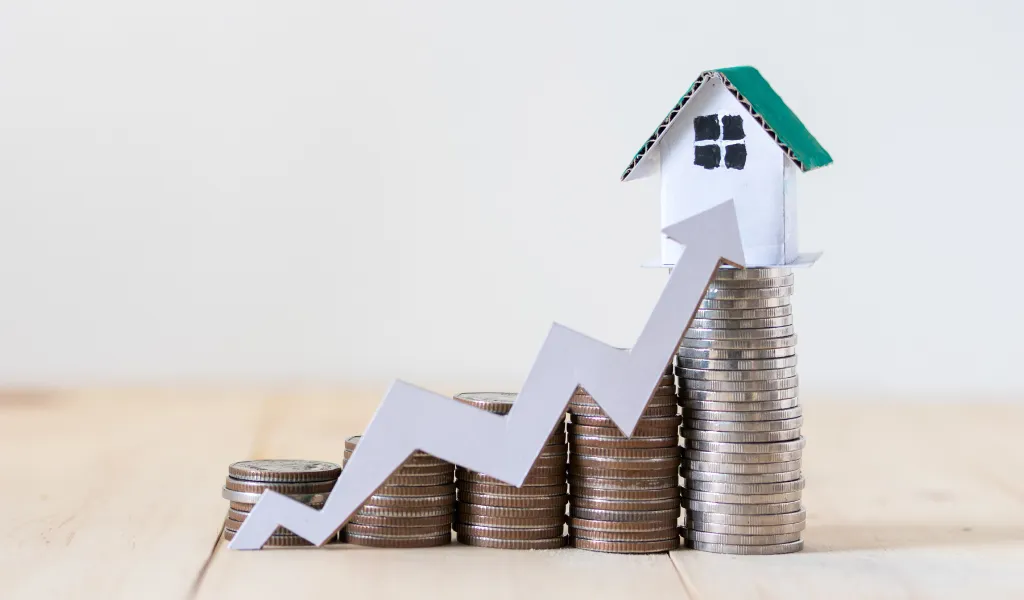Buy-to-let property is an incredibly interesting way of property investment. This is the type of investment in, which an investor buys the property, not to live in it but rent it out to a tenant. This strategy of property is about buying a property and then letting it to the tenants. This property project is increasingly getting the attention of investors who are looking to invest their money to replace income and increase savings.
Buy-to-let property may be both residential and commercial. This type of property investment is increasingly becoming popular as it ensures a regular source of revenue. It is a relatively safe investment but it takes a long time to reap its capital growth as it is a long-term investment. It requires patience, nevertheless, you continue to receive rental income regularly, and it is a stream of passive income. This property market is resilient and historically, it has shown consistent growth and it has been noted that even during times of adversity, it has soon recovered itself.

Buy to let personal or company?
Both the options, personal or company are open to purchase and manage the buy-to-let properties, each option having differing implications for tax purposes. Speaking in the context of a limited company, if the intention is to buy and rent out one or two properties then setting up a limited company for that purpose does not seem to be the right route.
However, if the objective is to build a property portfolio, then it may be a productive decision to create a limited company from the outset. It is increasingly becoming a popular choice for investors to buy a property through a company. According to Companies House data, a record 47,400 new buy-to-let companies were created in 2021.
Company ownership
The benefit of buying rental properties through a limited company is that you get full tax relief on finance costs such as mortgage arrangement fees, mortgage interest, access to potentially lower tax rates, and flexibility for planning, including inheritance tax.
Mortgage interest relief
Limited companies can compensate for all their mortgage interest and similar other finances such as mortgage arrangement fees against profits they got from their rental income before paying corporation tax. This means that corporate landlords are taxed on profits while individual landlords are taxed on turnover.
Corporation tax
After deducting finance costs such as mortgage interest, rental profits are currently subject to corporation tax at 19%. But this policy has been changed since April 2023.Corporation tax on limited companies’ profits was 19% regardless of the annual income of the company before 2023. But this rate has changed in 2023, the companies generating £250,000 profits and above will pay 25% tax.A previous rate of 19% will continue to be applied to the companies generating £50,000 or less profit.
Taking an income
The rental profits will belong to the company if the company owns the property.A form of remuneration needs to be paid to access the rental income for personal use which gives rise to the second tax charge. There are different options such as dividends, salary, provision of assets such as salary contributions, or company cars. Each has different tax criteria, and the best route will depend on personal situations.
Building portfolio
The company structure could be an attractive option if the purpose is to invest in many buy-to-let properties and there is no need to draw much or any income from the rent.
Family planning
A company structure can be a useful option for those looking to pass on their property portfolio to their family. It is typically more cost-effective and more straightforward to transfer company shares to family members in contrast to properties.
Personal Ownership
For landlords looking to invest in buy-to-let properties to use the rent as a form of income to live on, purchasing as an individual may prove to be the more tax-efficient solution.
Mortgage interest relief
Changes in mortgage interest relief were introduced in 2020/21, according to which landlords are not authorized to deduct finance costs, including mortgage interest from property income; instead, they receive a basic tax reduction to their income tax liability. It has also restricted tax relief to a basic rate of 20%, this measure can result in the landlord becoming a higher-rate taxpayer and has the effect of increasing taxable income and may affect certain benefit entitlements such as child benefit.
Income Tax
Landlords have to pay tax on rental income. The rental income will be added to the other income of the landlord to determine the tax band.
Capital Gains Tax
Capital Gains Tax (CGT) on residential property is deducted according to CGT at 18%, where the gain is according to the basic rate band, and 28% where the gain falls into higher rates. HMRC requires payment of CGT and online reporting on the disposal of the UK residential property within 60 days of completion.
Taking an income
If the landlord is looking to take a regular income from the buy-to-let properties then the best option is to invest as an individual as this option is more tax efficient.
Preferable mortgage rates
Typically personal ownership attracts preferable mortgage rates and lower fees than through a limited company. Arrangement fees, which can either be added to the mortgage or paid up front, also tend to be lower when you buy as an individual.

Is it trade or investment?
It depends on the intention of the investors to define whether the business is a trade or an investment. If the person purchasing the property intends to sell the property for profit then it indicates that the activity is trading. While on the other hand, if the purpose behind purchasing the property is to let on for a long time then it points towards investment. A buy-to-let property business is an investment, not a trade as the key point of the business is to buy and hold.
Why it matters?
Sometimes situations change the intentions. Situations sometimes arise when the investor immediately decides to sell the property he bought for long-term letting. He does so simply because the circumstances of the current market favored the quick sale of the property. Alternatively, a property purchased as a development project may change into an investment once development has been completed and it is decided to retain the property for a long time letting.
A switch from investment to trade or vice versa can cause problems as the movement of forward and backward stock causes a tax point to arise based on the value of the market. It means that the tax becomes due at the point of change rather than on sale and at that point, there will be no cash proceeds further to fund the tax cost. A switch from investment to trade or vice versa can create problems as changes in the stock cause tax point to arise based on market value. This means that when you will switch to either form, the tax will become payable at the time of change rather than on sale and at that point, you will have no cash proceeds to fund the tax cost.
The prose of buy-to-let property
- The value of property quickly changes from time to time. Nevertheless, it is a common fact that the value of a property will increase in the long term, despite the number of changes.
- If cared for, managed, and maintained aptly, buy-to-let property is your good asset and investment. If the property is properly handled, it generates revenues that can replace the employment that gives you the freedom to do whatever you like with time. Buy-to-let investment is a supplement pension for retirement.
- It is an extra source of income, and you can make your venture of buy-to-let properties a success by renting your property to tenants who will pay rent to cover the mortgage of your property. If a mortgage for buy-to-let is acquired at a low rate, a higher profit will be deduced from the rent of the tenants.
- An easy source of diversifying your portfolio as this type of investment does not require you to be physically attached to it, you just simply invest and become free and either get rental income or wait till you sell it in return for capital profit. In the like way, you make similar investments at multiple locations which ultimately lessen risk exposure in case one of your investments drops.
- Demand for rental properties is high in the wake of the increasing trend of people moving to the UK while accommodation facilities in the UK are limited. The UK is shifting to renting culture. You can gauge how rapidly rental culture is taking place Chestertons saw that in London alone the tenant demand grew by 17% in the first six months of 2022. Over the last decade, there was a massive increase of 10.5 million, a rise of 12.2%. Now rental properties account for around 35.7% of all UK dwellings. Therefore renting has become a popular lifestyle trend and necessity for people who can’t afford to buy a residential property in the UK. And more importantly, the current market is very strong. It means you will easily get tenants.
- According to Ocassa, the UK now stands equal to the countries that are famous for rent-based housing markets. Those countries include Hong Kong, Germany, and Switzerland.
- It is common knowledge that there is a downside to every business but historically speaking, buy-to-let property in the long term has always served investors with an increase in value.
Cons of buy-to-let property
It involves risk
- All businesses involve risk and when it comes to buying to let property, there’s a risk of an empty property. To make sure of profit from the property, before investing in the market, make sure that tenants are letting all the time. In the absence of tenants, it becomes challenging for the buyer because mortgage payment needs to be paid, whether you have rented out property to the tenants or not. You will have to pay your mortgage payment from your pocket if the property is empty, it will become a challenge for you.
It generates profits slowly
- Aside from the problem of tenancy, another disadvantage to this type of property is that it is slow to generate profit which limits your access to your money. It might take a long time for you to get back what you have paid for the deposit. It will also take some time for you when selling the property to wait for the prices to go up.
Involves higher fees
- When you are investing in buy-to-let properties, there are certain costs that you would have to pay that include conveyancing, Stamp Duty Land Tax (fees paid to a solicitor or licensed conveyor for legal issues), and insurance fees. Other costs such as the ground net, council tax, maintenance, and repairs cost should also be considered.
There is a high responsibility
Once you bought the property and rented it out to tenants, it will involve a lot of responsibilities to manage the tenant’s problems and maintain the property. Like all other investments, it is also time-consuming. Whether you are a part-time or full-time landlord, it will be your responsibility to attend to their needs.


